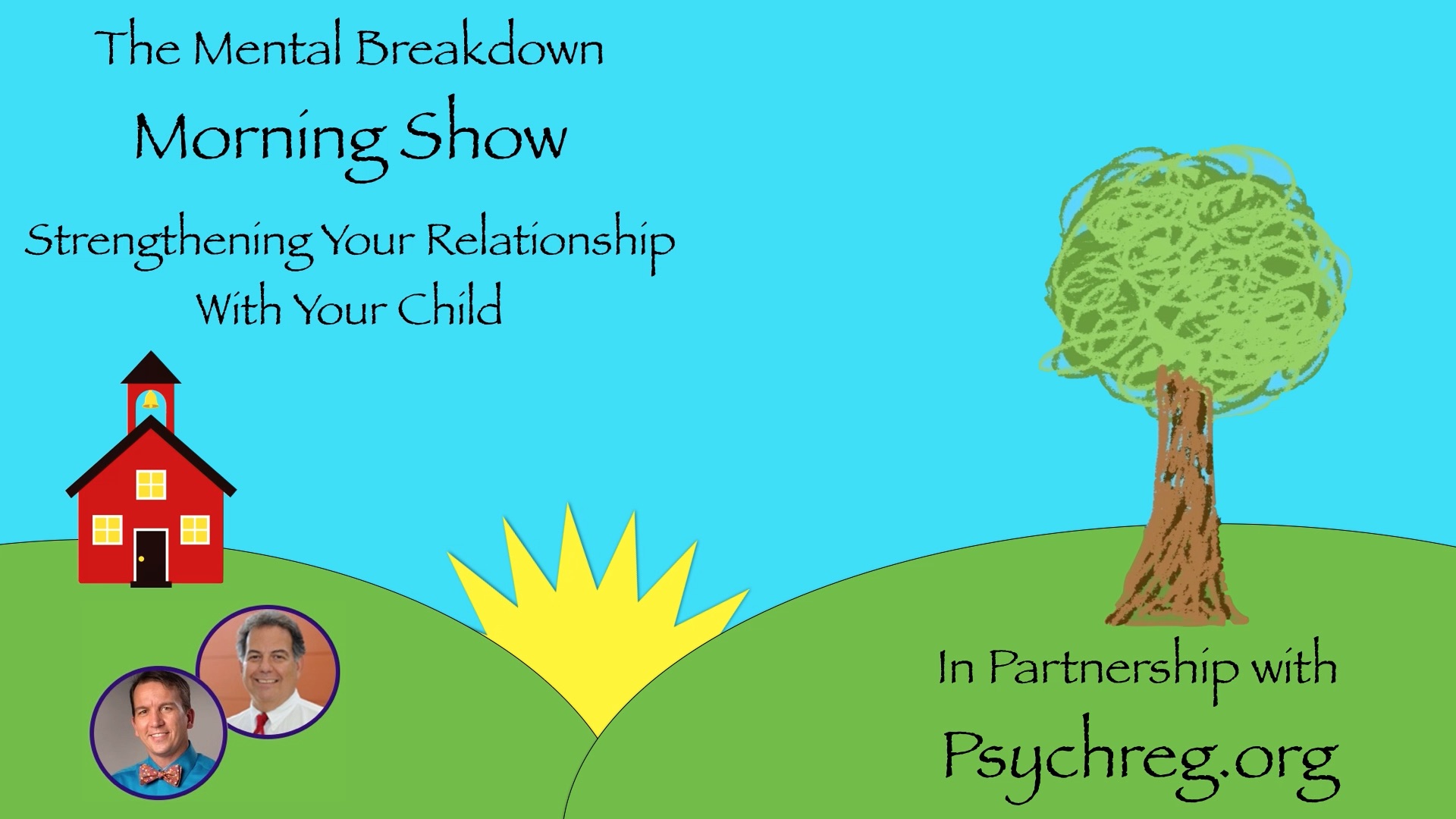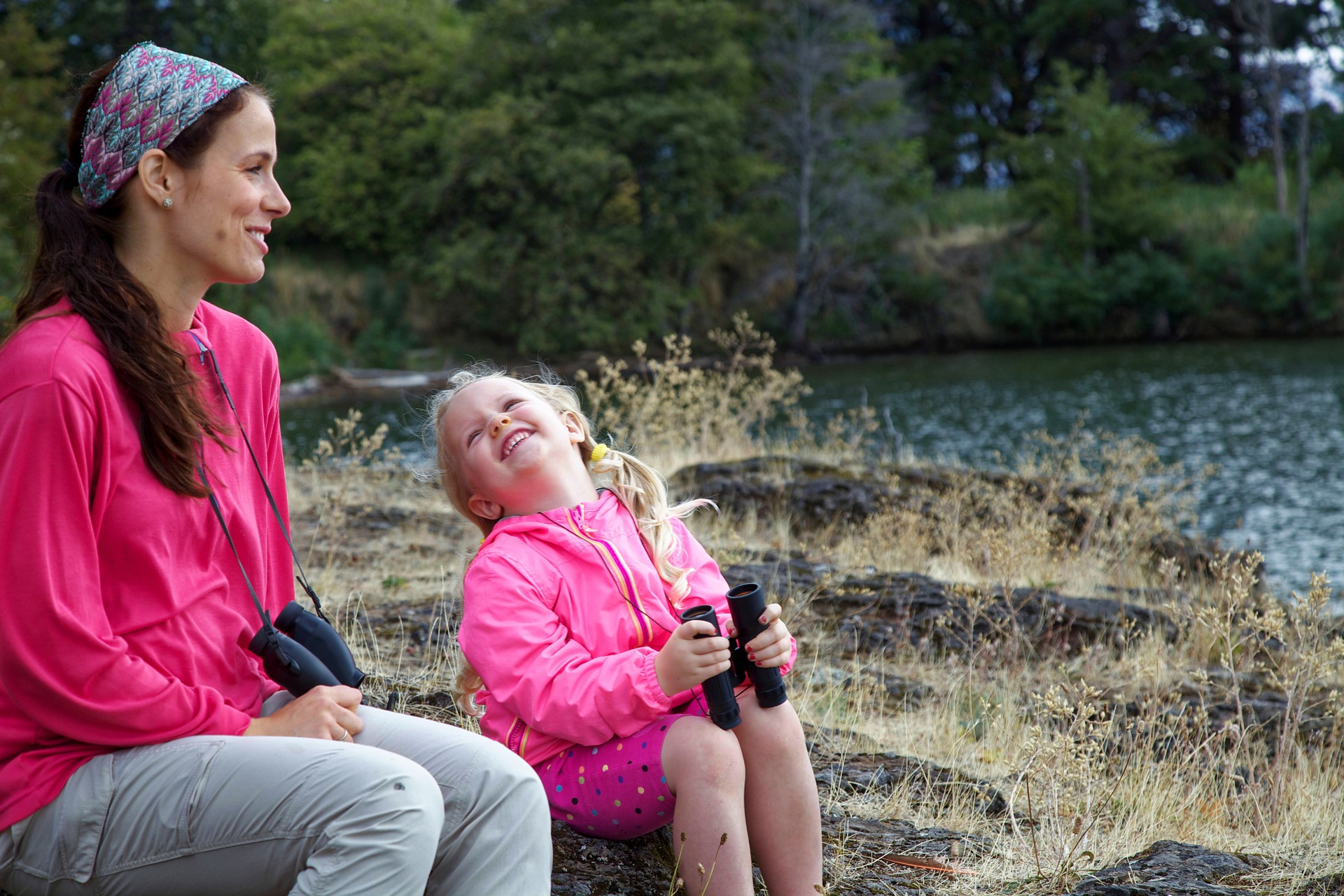Tag ArchiveBonding
- Home /
- Posts tagged "Bonding"
Strengthening Your Relationship with Your Child
Welcome to The Mental Breakdown and Psychreg Podcast! Today, Dr. Berney and Dr. Marshall discuss habits parents should develop to strengthen their relationship with their children.
You can read the article from Psychology Today here.
We hope that you will join us each morning so that we can help you make your day the best it can be! See you tomorrow.
Visit Psychreg for blog posts covering a variety of topics within the fields of mental health and psychology.
The Parenting Your ADHD Child course is now on YouTube! Check it out at the Paedeia YouTube Channel.
The Handbook for Raising an Emotionally Health Child Part 1: Behavior Management is now available on kindle! Get your copy today!
The Elimination Diet Manual is now available on kindle and nook! Get your copy today!
Follow us on Twitter and Facebook and subscribe to our YouTube Channels, Paedeia and The Mental Breakdown.
Please leave us a review on iTunes so that others might find our podcast and join in on the conversation!
The Mental Breakdown Podcast is now on Google Play Music!
About our theme song:
Happy Boy Theme by Kevin MacLeod is licensed under a Creative Commons Attribution license (https://creativecommons.org/licenses/by/4.0/)
Source: http://incompetech.com/music/royalty-free/index.html?isrc=USUAN1100647
Podcast: Play in new window | Download
Subscribe: RSS
Using Intention to Bond with Your Children
Last weekend, we had the distinct pleasure of interviewing Dr. Sara Langworthy (@DrLangworthy), a developmental psychologist living in Minnesota. Like us, Dr. Sara devotes much of her time to translational research. As the name implies, translational researchers seek to explain complex research studies in terms that layman (mainly parents and teachers) can understand and apply. One of Dr. Sara’s areas of expertise is the effect of early trauma and early deprivation on the developing brain (check out her website and YouTube channel). During today’s interview, she explained in clear and simple terms the many positive effects of staying close to our children, “getting down on the floor with them” as she put it.
What she was talking about was that parents need to be WITH their children. When they are young we need to be with them on the floor (as she put it), patiently helping them learn new things. When they’re older, we are WITH them in different ways, providing them with opportunities to become confident, resourceful, and resilient adults. She also implied, though she never stated it, that we should ENJOY our children. They should not be an impediment, they should not be a nuisance. They should be the sunshine in our lives for the few short years that we have them.
The day after our interview with Dr. Sara, I discover an article by Erin Leyba under the heading Joyful Parenting, the title is “3 Mindfulness Tools Parents Can Use Bond with Children.” Bonding, that’s what Dr. Sara was talking about. I had to read on.
The article begins by explaining that bonding with our children is an intentional act. It doesn’t just happen. We must intend for it to happen. And then she gives us three ways to make it happen.
- Set Ritual Intentions. Rituals are the things we do with our kids that they enjoy. One of my favorites is “Every time my child walks down from the room in the morning, I will give her a hug and say ‘I love you so much.'” The other one I liked is ‘I will take my child to play outside for 20 minutes when she/he gets from childcare or school.’ We will always have other things to do, so we need to set ritual intentions so that the other things don’t crowd out our children time.
- Set Implementation Intentions. Remember that saying “When life gives you lemons, make lemonade?” Well this is the parenting analogy of that. Implementation intentions anticipate the bad times so that we can turn them into good things. For example, “when my child skips his nap, I will take us both on a walk and not let it ruin my day.” Think about your day. Where are the “hot spots?” And when things get bad what can we do instead?
- Use Visualization. Let the best possible scenario play out in your mind’s eye. This is what athletes do, they visualize the best case scenario. As a Floridian, I especially liked this one from the article, “Before a family beach vacation, a mom visualized herself walking on the beach with her daughter, playing in the waves with her kids, taking pictures of the sunset with her son, and snuggling and reading books to her 2 year old in the morning before the rest of the family woke up.”
Each of these is easy and, yet, they accomplish so much. Many parents think about things AFTER they happen, wishing they would have reacted differently or they had had a better plan. What intention allows is for us to think about things BEFORE they occur so that we are prepared to act and react in the best possible way.

